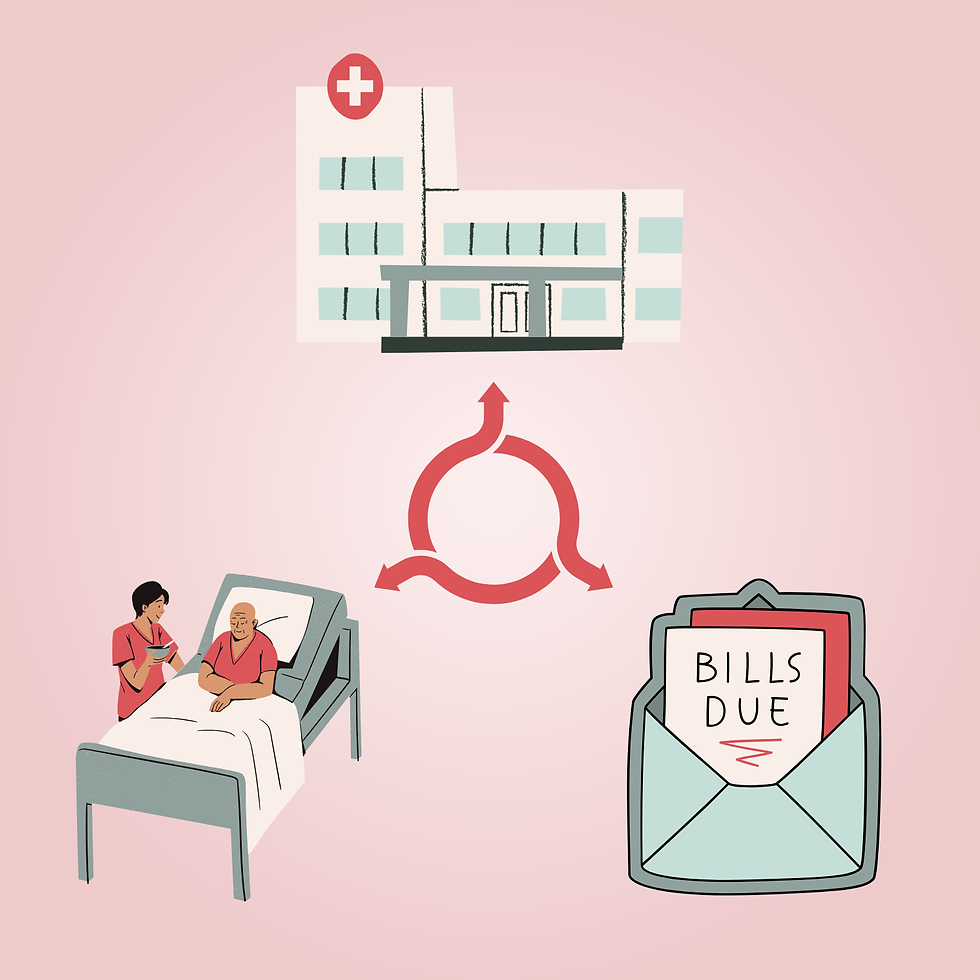Words Matter: The Impact of COVID-19 on Gender-Affirming Surgeries
- Simone Nabors
- Feb 28, 2021
- 3 min read
“Due to the COVID-19 pandemic, we have been advised to cancel all elective procedures. Your surgery will be rescheduled when conditions allow.”
This is the kind of message that millions around the world have received over the past year as the pandemic has ravaged our health systems. After reading through a list of steps to take if they find themselves experiencing life-threatening symptoms of the virus, patients are once again reminded that their care is elective and has been deemed nonessential. Expansive resources have been dedicated to determining the effects of these cancellations, but one continuously overlooked group is the transgender and gender nonconforming (TGNC) community who have had their gender-affirming procedures indefinitely postponed or even cancelled.

Gender-affirming surgeries include a wide range of procedures that are designed to align an individual’s body with their gender identity. The American Medical Association (AMA) has classified gender-affirming services as medically necessary in an effort to reduce barriers to care for TGNC patients [1]. (That said, it is important to note that not all members of the community choose to undergo medical procedures.) Despite being deemed a necessity, these procedures are still classified as elective, which has left them vulnerable to blanketed cancellations throughout the pandemic.
An AMA panel comprised of LGBTQ health experts weighed in on the impacts that the COVID-19 pandemic has had on TGNC individuals. The cancellation of surgeries has led to major disruptions in people’s lives and has compounded upon the effects of social isolation, leaving this population especially vulnerable to adverse outcomes in both their physical and mental health [2]. To be clear, these issues weren’t brought on by the pandemic. They were simply exacerbated and illuminated by it. While this panel highlighted several systematic issues related to gaps in insurance coverage, it also forced me to consider a larger issue in our classification system as a whole: our language.
From a societal standpoint, the term “elective” is often equated with “cosmetic” and perceived as frivolous and unnecessary. In reality, most hospitals classify elective surgeries as those “that can be scheduled in advance” and can include anything from the removal of a mole to the treatment of a cancerous tumor [2]. This gap in understanding between the medical community and the general population is especially damaging to members of the TGNC community who may interpret the classification of their life-saving care as “elective” to mean that it is unimportant.
The classification system, as well as general cost and insurance coverage, are all long-standing barriers to gender-affirming care that we ought to work towards dismantling, but they are reinforced by policies and loopholes that will take time to overcome. That being said, our language and its perception in the general population are sizable ethical concerns, but ones that can be easily addressed. Even if we can’t immediately change the surgical classifications themselves or ensure that access to these life-affirming surgeries won’t be interrupted in the future, we at the very least have the responsibility to make sure that our language is clear and isn’t causing harm to those we are trying to help.
In these times of uncertainty when so much feels that it is out of our control, the one thing that can be certain is that our words matter.
References [1] American Medical Association. (2019). Talking Points: Health insurance coverage for gender affirming care of transgender patients. Retrieved February 21, 2021, from https://www.ama-assn.org/system/files/2019-03/transgender-coverage-talking-points.pdf [2] American Medical Association. (2020, June 15). How gender affirming surgeries have been impacted by the pandemic. Retrieved February 21, 2021, from https://www.ama-assn.org/delivering-care/population-care/how-gender-affirming-surgeries-have-been-impacted-pandemic [3] Johns Hopkins Medicine. (2021). Types of surgery. Retrieved February 21, 2021, from https://www.hopkinsmedicine.org/health/treatment-tests-and-therapies/types-of-surgery



Comments